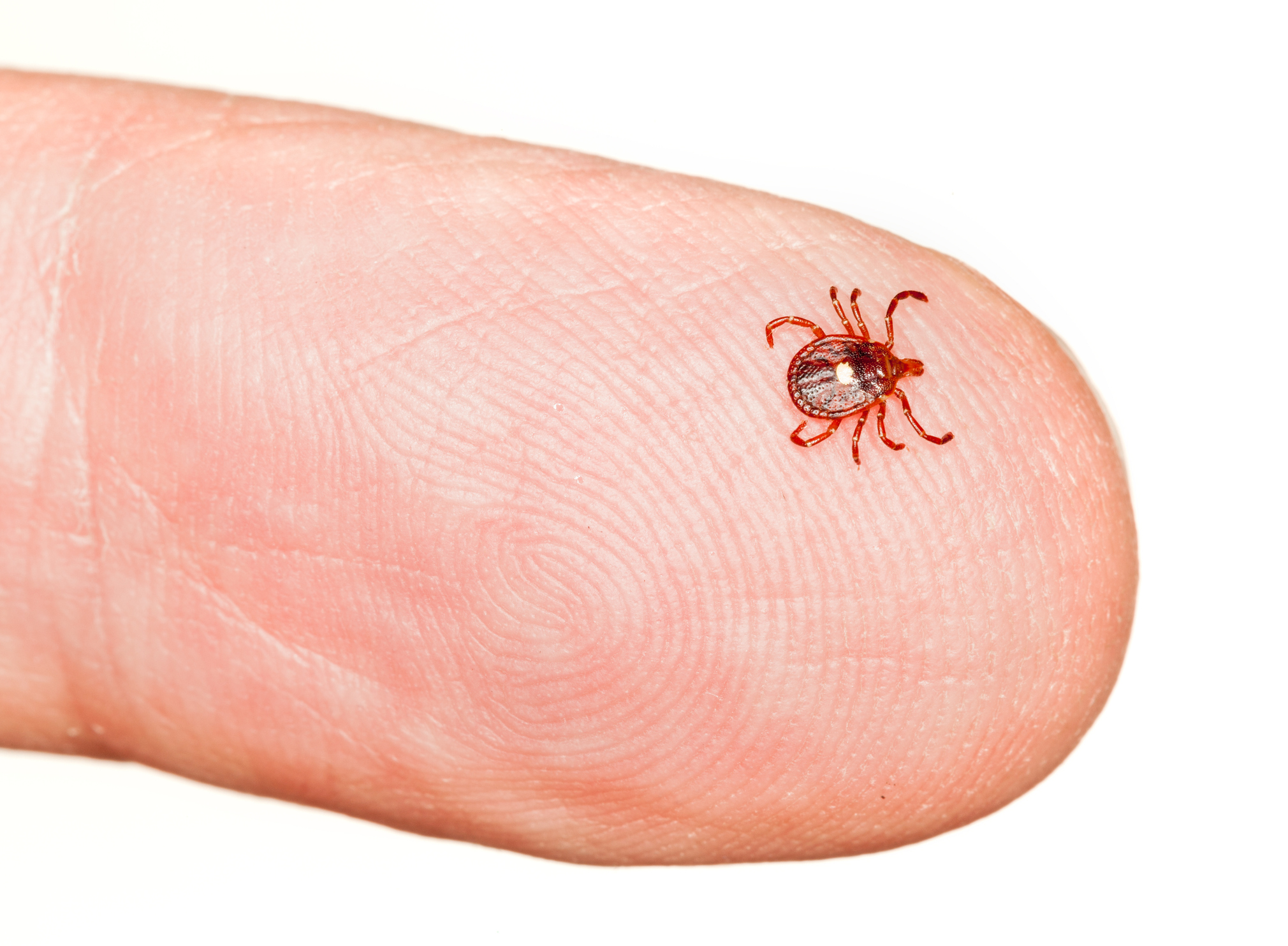Sports medicine and rehabilitation help athletes prepare for the spring season by improving...
Read More
The spring and summer months are known for activities ranging from yard work to picnics and sunbathing. Enjoying the outdoors is great for health and wellness, but it also carries the risk of insect bites of all types—none more stress-inducing than those from ticks. Most people know that certain ticks can carry Lyme disease, but recently diagnoses of a lesser-known disease called alpha-gal syndrome are spiking across the United States and South Jersey.
“We are seeing more ticks than ever,” said Craig Bober, D.O., family medicine physicians at Inspira Medical Group Primary Care Mantua. “And different species are traveling to areas where they have not been seen before.”
Leading research suggests that alpha-gal syndrome originates from lone star ticks, which are typically found throughout the Eastern and Central United States but have spread north due to the warming climate. Here’s what you need to know about these parasites, the symptoms of alpha-gal syndrome and how to protect yourself.
Lone star ticks are aggressive insects that hunt their prey. The greatest risk of being bitten by the lone star tick during the year is in the early spring through late fall. There are a few ways to spot them out in the wild:
But ticks are often tricky to see until after you find one on yourself, your family or your pet. Once a tick is removed, it is important to know what to look out for to decide if or when to seek medical treatment.
Much like ticks infected with Lyme disease, the lone star tick bite leaves a bull’s eye lesion around the bite; the rash usually appears within seven days.
“After a lone star tick bite, some people report allergic reactions to red meat,” says Dr. Bober. “The allergy they develop is called alpha-gal syndrome—named after a sugar molecule that is found in most mammals.”
People with alpha-gal syndrome may experience allergic reactions to pork, beef, rabbit, lamb and venison as well as gelatin, cow's milk and milk products.
Symptoms commonly appear two to six hours after eating meat or dairy products or after exposure to products containing alpha-gal (for example, gelatin-coated medications).
Symptoms of an allergic reaction usually appear two to six hours after consuming products containing alpha-gal and may include:
“Alpha-gal syndrome presents itself differently from person to person, with symptoms ranging from mild to severe or even life-threatening,” says Dr. Bober. “While some people may not have an allergic reaction after every alpha-gal exposure, others may experience reactions that affect the entire body, such as anaphylaxis.”
Limiting your exposure to ticks is important in preventing tick-borne disease and may reduce your chances of developing conditions such as alpha-gal syndrome. Much like sunburn or other insect bites, there are important safety measures you can take before and after spending time outdoors.
Before going outdoors:
After coming indoors:
Lone star ticks are a newer, dangerous threat to people across the U.S. With their bite comes the risk of developing tick-borne illnesses like alpha-gal syndrome. But prevention is key, and techniques are in lockstep with the ways we are used to protecting ourselves in the spring and summer months.
Staying vigilant and going to your doctor after experiencing any symptoms that appear within 30 days of a bite is essential in treating and preventing further complications.
Inspira Health is a high reliability organization (HRO), which means safety is the top priority for patients and staff. To make an appointment, call 1-800-INSPIRA.

Sports medicine and rehabilitation help athletes prepare for the spring season by improving...
Read More
Specialty doctors provide expert care for specific health concerns, ranging from ear, nose and...
Read More
Preventive health practices like regular exercise, balanced nutrition, routine screenings and stress...
Read More
The material set forth in this site in no way seeks to diagnose or treat illness or to serve as a substitute for professional medical care. Please speak with your health care provider if you have a health concern or if you are considering adopting any exercise program or dietary guidelines. For permission to reprint any portion of this website or to be removed from a notification list, please contact us at (856) 537-6772
